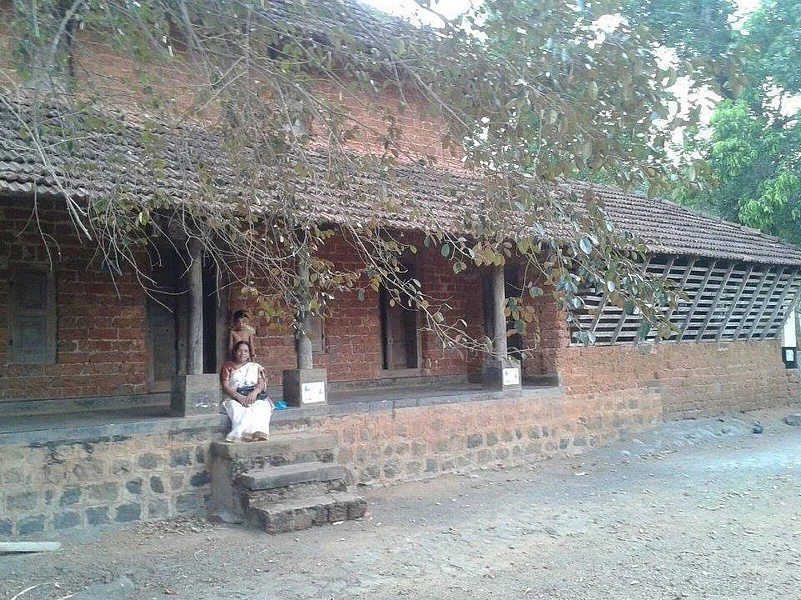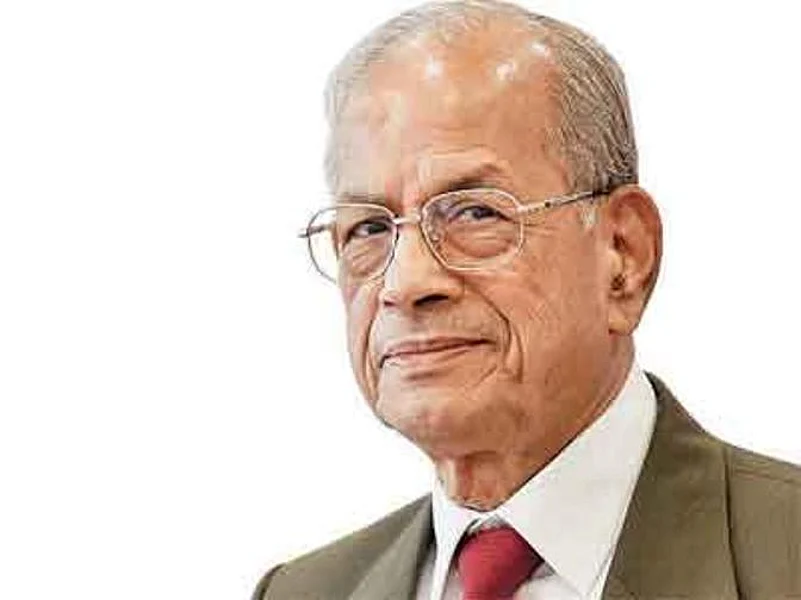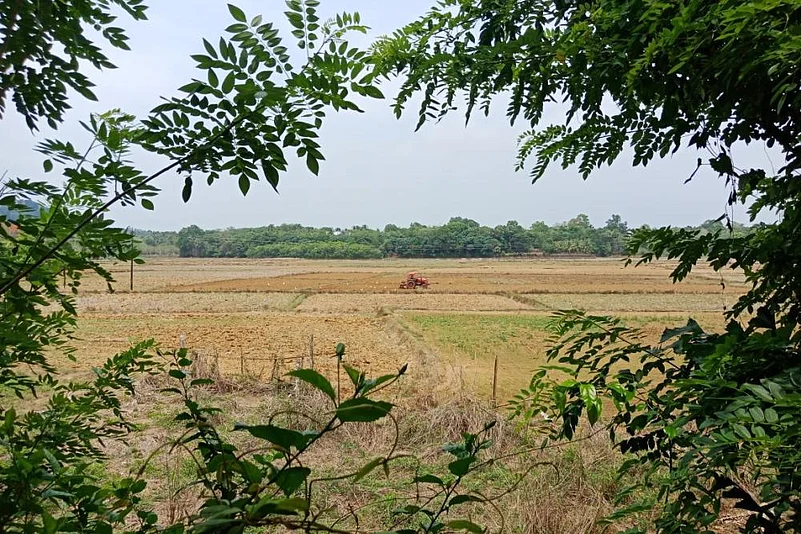The vignettes of the rugged terrain had got etched deep in my memory—not because they were strikingly beautiful, but because I was a child with a mind several times more fertile than it is today a good four decades later. In the late 1970s, as a middle-school student keen to absorb any sight or sound that was new, a cousin’s wedding gave me a chance to stay briefly in one of those villages in central Kerala.
Akilanam, south of Pattambi in Palakkad district, was not electrified those days. And my cousin’s marriage that we were to attend was scheduled to be held in the night—a rarity by then in the southern state that came to be eventually called God’s Own Country. The bride’s family was to host the post-dinner rituals in her house that was a modest tile-roof house with an open verandah and a few rooms that would be ill-lit even during daytime, courtesy the small windows and the lush greenery around. Beyond the red-earth courtyard was a vintage temple that also had a rectangular pond, on the other side of which were sprawling paddy fields bordering a thin strip of raised road that was nominally tarred.
Advertisement
It was on getting down there from a regular transport vehicle that we, belonging to the proud groom’s party, reached Akilanam from another village not very far. “Line bus” was what we used to call a carrier of such paid travel service linking places of the locality. An occasional palmyra palm will tend to break the lazy looks of the farms that were waiting for the monsoons to arrive and let the sowing happen at the earliest. The widest embankment was no more than two feet wide, along which we walked in a forced queue towards the festive venue. It was sunny, and a couple of elderly members held their white thorthu towel up to mellow the overhead heat. To us kids, that lent it the effect of a jatha—or political march, which is all too common in Communist-Vs-Congress Kerala.
Advertisement
Once seated under the coconut-leaves pandal propped by bamboo poles and festooned with braided fronds sometimes fashioned to look like parrots, we guests were served with buttermilk in steel tumblers. A couple of hours thence, the evening hour meant it was time for bath at the temple tank. Post sunset, hurricane lamps and petromax lanterns sought to light up the corridors and tiny interiors. They glowed yellow and bright in a random spread-out, as if parts of a poor man’s chandelier sans centrality.

The groom was a sprightly chenda drummer with a rustic sense of humour. Maniyettan, was we called Varavoor Narayanakutty Nambiar, was decked up in what should be called the simplest dress for a groom on earth. Thatttu, as the frilled dhoti around the waist and extending up to the lower thighs, made him look like a young Mahatma Gandhi minus the walking stick. And, plus the sacred thread slung down from left shoulder across the chest that slotted him in a semi-Brahmin caste which neither had the halo around a priest nor the wealth of a zamindar.
“It’s time now to take the next round of bath,” said my grandfather who was tasked with conducting the rituals. A part-time Pandit of sorts, the bald and bespectacled senior citizen was unsure of the nitty gritty of the assignment—and had to refer to shabby-looking book, from which he had just read out that statement after bringing the page close to an in-house lamp called madambi. Maniyettan had already begun going mad with too many dips he had to take at the temple tank—as if a panacea for the young woman he was to get as wife from the occasion.
Advertisement
This time for his bath, I joined Maniyettan. The steps down the pond were predictably dark, yet there was practised ease in the way the bride got near the water. But then, suddenly, Maniyettan showed no eagerness to get drenched. He bent down, took a handful of water and sprinkled it across the body in a pujari-like man himself. And then told his best man to pass on the bottle of attar that his friend Siddiq Husain of the local panchayat office had got from his brother working in Persia. The fragrance was Arabian to my mind, something typical of Muslim households as you enter the threshold. “Forget Kunjukutta ammaman’s diktat! I’m not here to obey all of it,” he said with a smart guffaw, and combed his hair with just the fingers while scaling up the steps.
Advertisement
Back at the wedding spot, the amateur sermoniser wasn’t that dumb to mistake Maniyettan’s mischief for real shower. “Hey Maniyaa,” he blurted out in a strict tone laced with veiled sarcasm, “I had asked you to bathe, not to stink yourself.”
Peals of laughter wafted across the gathering.

Cut to 2018, May 5. Am again in a village in the locality. Karukaputhur to be precise, barely a couple of kilometres from good old Akilanam. The region hasn’t changed much in looks, contrary to what I had anticipated. It’s another wedding tomorrow, and the run-up ceremonies are occasionally hindered by power cuts. They are brief, and quickly overcome by switching on the generator.
Advertisement

From the fence of the bustling house with undulating compound revelling in arecanut cultivation, one can see the paddy fields again. This time, though, it’s no peasant out there, instead there’s a tractor ploughing the soil. Is there any other major change? Yes, the area has a got a celebrity too: E. Sreedharan. The villagers take pride in the fact that India’s Metro Man, who’ll turn 86 next month and had won the Padma Vibhushan a decade ago, is a native of their panchayat.



















